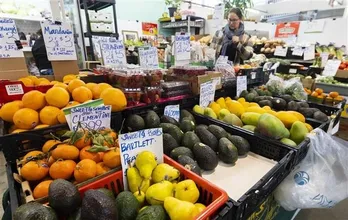
Model of hydroponic vegetable growing in Yen Minh town, Yen Minh district, Ha Giang province with direction towards the development of high-tech agriculture.(Photo: VNA)
The number of COVID-19 cases in Vietnam is decreasing but the adverse effects of COVID-19 on businesses, especially those led by vulnerable groups, are still prolonged and damaging.
A UNDP study in August last year showed that household businesses and micro, small and medium enterprises found their revenue declined sharply, forcing them to cut back operations and lay off workers.
Enterprises in tourism, restaurants, hotels and passenger transportation were those hardest hit. This impact is exacerbated among female-headed households.
“This support package will contribute to helping SIBs remove the above bottlenecks and difficulties through concrete actions, such as sending experts and intermediary organisations to accompany SIBs for six months to solve specific problems in management, business, and product development,” said Le Manh Hung, Director of the MPI’s Agency for Enterprise Development.
Especially, the COVID-19 Adaptation Programme also provided seed funding of 100 million VND (nearly 4,350 USD) for each enterprise to build and test new business models. This was a very valuable resource for SIBs amid difficult access to financial resources, he added.
UNDP Resident Representative in Vietnam Caitlin Wiesen commended Vietnam for its rapid and equitable roll-out of the vaccination programme, bringing the country back to normal life. However, she is concerned about the adverse effects of COVID-19 on businesses.
“Our baseline assessment showed that nearly 47 percent of interviewed social impact businesses had their revenue reduced due to COVID-19. Businesses with the highest percentage of revenue reduction belonged to the groups employing people with disabilities, ethnic minorities, and cooperatives,” said Wiesen.
We hoped that the programme would provide the necessary technical and financial support for the SIBs to realise their innovative ideas to solve their own challenges, thus benefiting vulnerable groups, she added.
As the flagship support for SIBs in the “Leveraging Vietnam’s Social Impact Business Ecosystem in Response to COVID-19”- ISEE-COVID project, the Covid-19 Adaptation Programme is expected to help SIBs to identify critical challenges due to COVID-19; design new business models or develop new products and services to adapt to COVID-19; and build and test prototypes of products and services with the seed funds.
The programme will support 30 SIBs in the agriculture and tourism industries this year, focusing on the SIBs led by women and vulnerable groups. Each selected SIB will receive a six-month coaching service and funding of 100 million VND to identify, build and test the prototypes or new business models.
The AED, GAC, and UNDP encourage eligible social impacted businesses to submit expressions of interest to participate in the programme.
All social enterprises, impact start-ups, co-operatives, and small and medium enterprises that work with or work for the vulnerable groups, in the agricultural and tourism sectors, are welcome to apply for the programme.
There is no restriction on population group, occupation, or geographical location as long as the businesses support vulnerable groups and the proposed business models, and new products and services are innovative, sustainable, scalable, and relevant to adapt to the challenges of COVID-19./.
VNA
 Retailer brings Vietnamese products closer to consumers in Canada
Retailer brings Vietnamese products closer to consumers in Canada



